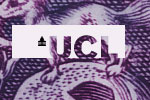

 |
 |
Re-inventing the Batavians: Erasmus and AureliusIn the early 1500s, when Tacitus’ works became available once more, Northern Netherlandish humanists were intrigued by the Batavians whom they perceived as their ancestors. ##Cornelis Aurelius (ca. 1460-1531) was one of the first to occupy himself with the task to connect his fellow countrymen to the brave Batavians. In several tracts, all published around 1510, he argued that ancient ‘Batavia’ corresponded with the early 16th century province of Holland.
##Desiderius Erasmus (of Rotterdam, 1469-1536), the most prominent Northern European humanist of his time, also used the Batavian notion. In his Adagia (2nd ed., 1508), a collection of ancient proverbs, he included the adage “Auris Batava” (or: Batavian ear), based on one of the Roman poet Martial’s epigrams. Whereas Martial had interpreted the word Batavian as ‘blunt’ or ‘rude’, Erasmus suggested a more positive understanding of the concept, and approvingly described his fellow countrymen as Batavians. Erasmus’ works were read by many of his contemporaries, and his description of the Batavians was widely followed. During and after the >Revolt against Spain in particular, in the late 16th century, the need to define a Dutch identity became more urgent. |